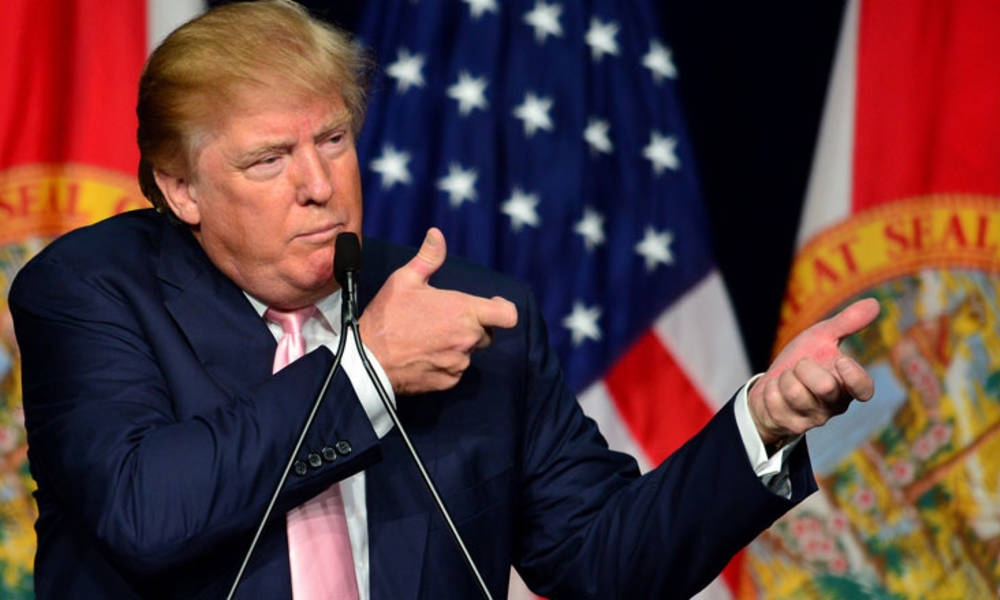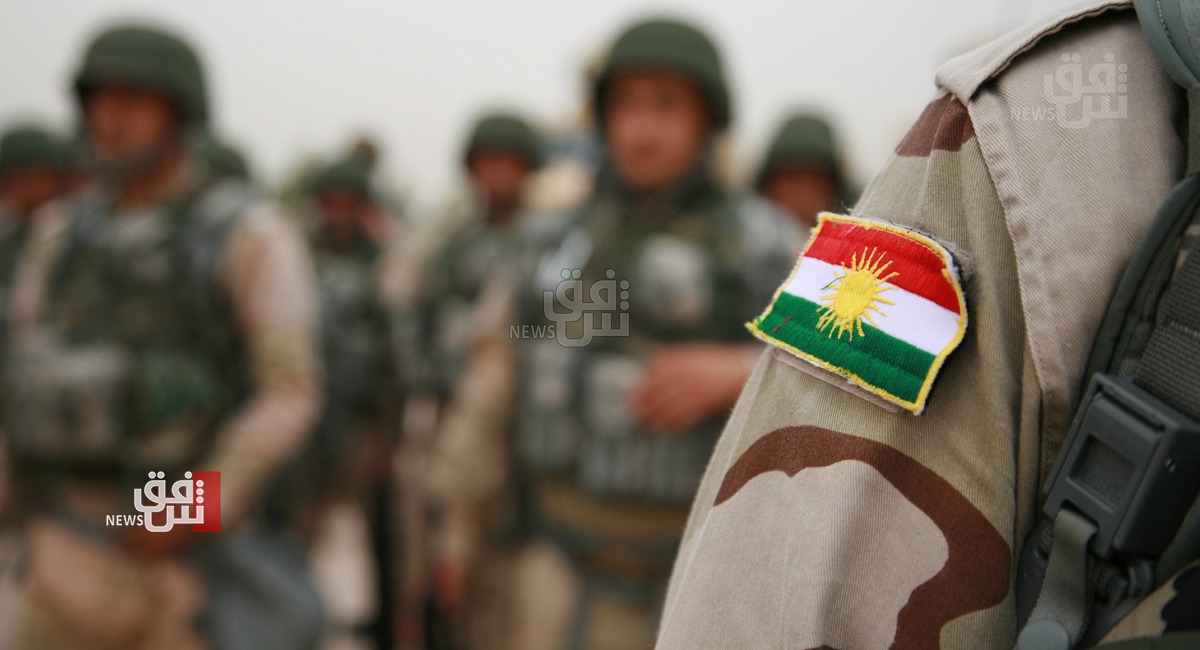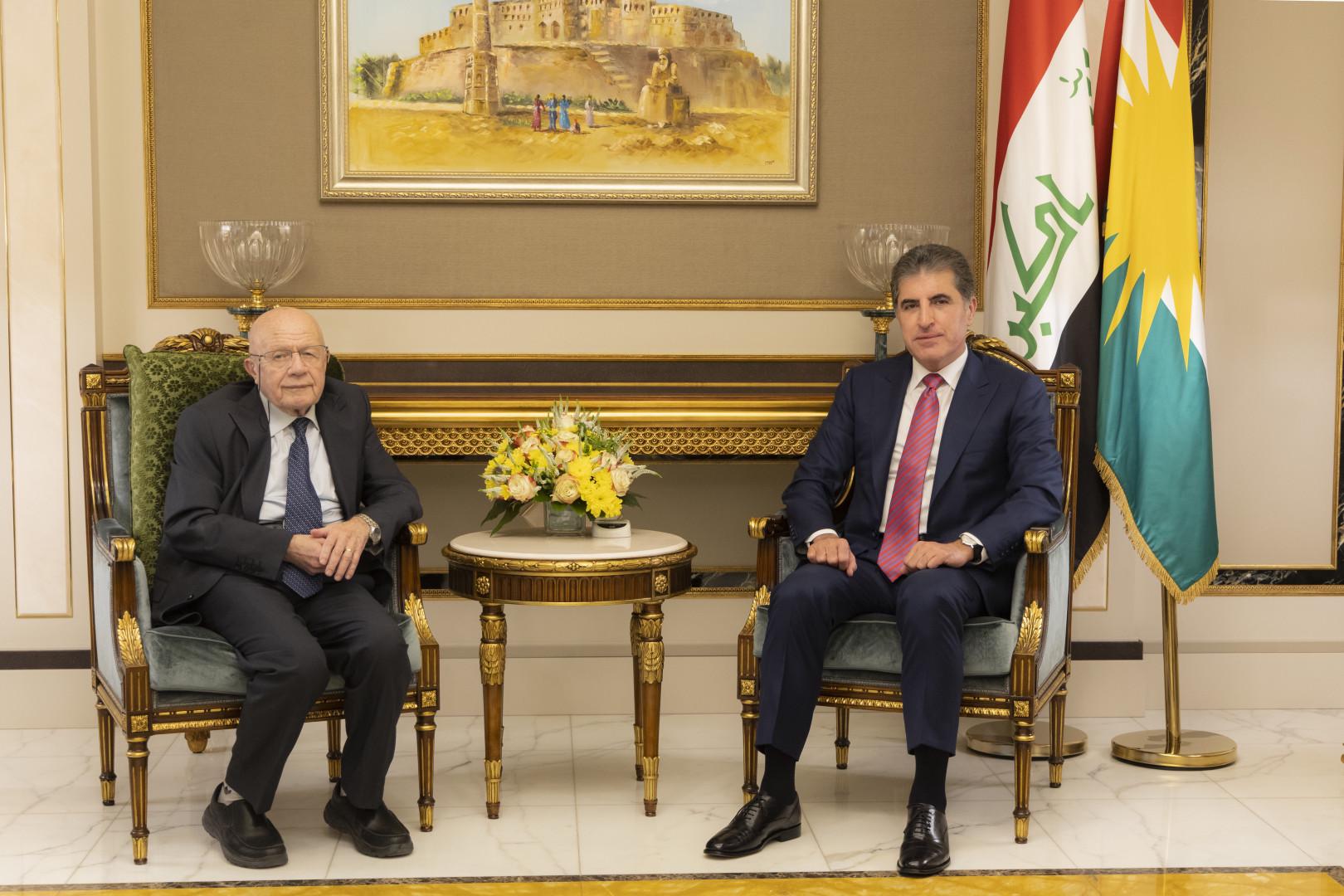Iraq faces uncertainty as Trump’s return spurs new diplomatic and economic challenges

Shafaq News/ As Donald Trump securesa second term in the White House, Iraq faces a delicate balancing act in itsrelations with the United States. Despite his controversial role in the 2020airstrike that killed Iranian general Qassem Soleimani and Iraqi PMF leader AbuMahdi al-Muhandis, top Iraqi officials have expressed their commitment tostrengthening bilateral ties.
Experts warn that Trump's assertiveforeign policy could intensify Iraq's internal and regional challenges,particularly about US military presence, economic sanctions, and Iran'sinfluence in the region.
Official Congratulations
Iraqi Prime Minister Mohammed Shiaal-Sudani congratulated US President-elect Trump, Vice President-elect JamesDavid Vance, and the American people on the successful election process.
In a post on X, al-Sudani affirmedIraq’s “steadfast commitment to strengthening bilateral relations with theUnited States, grounded in mutual respect and shared interests.” He added thatIraq hopes this new phase will lead to deeper cooperation between the twonations across various sectors, promoting sustainable development andbenefiting both peoples.
Iraqi President Abdul Latif JamalRashid also extended his congratulations on X, wishing Trump and hisadministration success in leading the U.S. toward further progress andprosperity. “The new American administration will foster much-needed stabilityand constructive dialogue in the region.”
In the Kurdistan Region, PresidentNechirvan Barzani offered his warm congratulations to President-elect Trump andVice President-elect Vance, voicing optimism about strengthening partnershipsand enhancing the Kurdistan Region’s relations with Iraq and the United States.
"I extend my warmestcongratulations to President Donald Trump and Vice President-Elect JD Vance ontheir election victory." He added, " I look forward to workingtogether to further strengthen our partnership and deepen the bilateral tiesbetween the Kurdistan Region, Iraq, and the United States."
Kurdish Prime Minister MasrourBarzani also congratulated Trump, expressing eagerness to deepen cooperationwith the US and work together to promote peace and stability in the region.
Legal Actions Against Trump
On January 7, 2021, the Al-RusafaInvestigation Court in Baghdad issued an arrest warrant for then-US PresidentDonald Trump. The warrant was part of an Iraqi investigation into the USairstrike that killed Qassem Soleimani, the commander of Iran's Quds Force—abranch of the Islamic Revolutionary Guard Corps (IRGC)—and Abu Mahdial-Muhandis, Chief of Staff of Iraq’s Popular Mobilization Forces (PMF). Thetwo leaders were targeted in a strike near Baghdad International Airport.
The warrant was issued under Article406 of the Iraqi Penal Code, which pertains to premeditated murder.
Iraq’s Supreme Judicial CouncilPresident Faiq Zidan highlighted Iraq’s position on the matter, stating, “Weissued an arrest warrant for Trump and will not hesitate to take legalmeasures.”
As diplomatic relations evolved,both Iraq and the US faced challenges balancing legal actions with broaderstrategic interests.
Trump's Expected Policies and Impacton Iraq
Political analyst Abbas Al-Jubouridiscussed the potential policies of Trump and his approach toward Iraq.Al-Jubouri stated to Shafaq News, "Trump has clear goals he will worktoward, and while American foreign policy tends to remain stable, presidentsusually have a degree of flexibility in their actions."
He described him as a"dictatorial president," explaining that Trump tends to bypasscertain institutions and overstep many powers. Al-Jubouri added, "Hisvictory is not in Iraq's favor at all."
The analyst predicted that Trumpwould likely seek to maintain, and possibly increase, the presence of US forcesin Iraq, expecting him to impose sanctions on those who attempt to influencethe war in Gaza and to continue sanctions against Iran.
Al-Jubouri concluded by recallingTrump's past comment, "There is no Iraq, only oil," emphasizing thatunder such a commercial approach, Iraq must prepare a comprehensive team ofexperts to confront Trump's new Middle East and Iraq policy.
Internal and External Efforts
Political analyst Mujashaa al-Tamimipointed out that Iraqis have high expectations from President-elect DonaldTrump regarding both internal and external political matters.
On the domestic front, al-Tamimiexplained that “Iraq needs strong US support for its government and efforts tofoster dialogue between Iraq's various political groups” Pointing out theStrategic Framework Agreement between Iraq and the US, particularly in civilsectors, as a key avenue for strengthening Iraq's economy.
“Iraq hopes for increased USinvestment, with American investors playing a more active role in the country’seconomic development.”
Regarding foreign policy, al-Tamiminoted that Iraq is facing a severe drought crisis and expected Washington toexert pressure on upstream countries to release more water to Iraq, ensuring itreceives its full water share.
“Iraq is looking for US support inpreventing regional countries from intervening in Iraq’s political affairs. Asa strategic ally, the US is expected to uphold its commitments to Iraq, whichplayed a pivotal role in establishing the current political system followingthe fall of Saddam Hussein.” He added.
Impact of Trump's Victory on Iraq'sEconomy
Economist Dr. Mustafa Farraj warnedthat Trump’s victory could have several implications for Iraq’s economy,particularly concerning oil prices, sanctions on Iran, and foreign investments.
Farraj explained to Shafaq News thatglobal oil prices could be affected by Trump’s policies, either rising orfalling, which would have a direct impact on Iraq.
Regarding sanctions on Iran, Farrajnoted, “Trump is known for his tough stance on Iran and may impose even harshersanctions, which would negatively affect Iraq's trade relations with Iran,especially in the importation of gas for energy use.”
On foreign investments, Farrajindicated that Trump’s economic and trade policies could influence the flow offoreign investments into Iraq, “potentially destabilizing the Iraqi market ifUS policies toward the Middle East shift.”
“The overall impact will depend onglobal and regional policy changes and Iraq's ability to adapt and capitalizeon emerging opportunities.”
Economic researcher Ahmed Eidpointed out that US foreign policy generally follows the same principles andobjectives, but the approach differs in practice, particularly regarding Iraq.
Eid explained, “Republican handlingof Iran contrasts with the Democratic approach, with Republicans being lessflexible, especially when dealing with Iran’s influence in the region,including through its proxy militias.”
“Republicans view Iran’sintervention in Iraq as a threat to their interests, with Trump seeing Iraq asboth a strategic and economic asset for US policy. This shift places Iraq atthe center of American focus in the Middle East.” Eid told Shafaq News.
Economically, Eid noted that USforeign policy would aim to limit Iran’s economic expansion, which couldincrease pressure on Iraq regarding its oil exports and gas investments.Additionally, “US measures might target the flow of Iranian gas revenue intoIraq, potentially limiting economic cooperation between the two countries.”
Eid further explained that the USwould likely use the Treasury Department and the Federal Reserve to tightenoversight of Iraqi finances, monitoring transfers to prevent funds fromreaching Iranian-backed entities or sanctioned groups.
Furthermore, he predicted a stronglikelihood of new sanctions on Iraqi banks and influential entities,“especially if the Central Bank of Iraq fails to manage risks associated withfinancial transfers.”
“Trump’s policy would aim toundermine Iranian interests that threaten US priorities, potentially leading tofurther targeting of militias and factions in Iraq allied with Iran. This, inturn, could escalate security risks that directly affect Iraq's economiclandscape.”
Security and Trump's Approach
Security expert Ali Al-Askariemphasized that Trump’s primary focus is the US economy, and in order tofulfill this objective, he must ensure the security and stability of Iraq andthe Gulf region.
Al-Askari explained, “Iraq’s economyis heavily reliant on oil exports, which are closely linked to the overallrecovery of the US economy. Therefore, the US-Iraq security agreement mustremain in effect to ensure mutual stability.”
Regarding the “militias,” Al-Askarinoted that they will continue their "hit-and-run" tactics against USforces. However, “the US knows how to handle these groups to maintain thestability of oil exports, which takes priority over Iraq's broader securityconcerns.”
Al-Askari also highlighted that theUS remains cautious about Iran’s influence in the region, further complicatingthe security dynamics.
No Major Changes Expected
Military expert Munthir Dagherbelieved that, contrary to the expectations of many, there will be nosignificant changes following Trump’s victory, or at least not to the extentsome anticipate. “Trump is unpredictable, often willing to make drastic policyshifts to secure what he sees as beneficial for the US, even if it meanschanging course abruptly.”
However, Dagher argued, “in the nearfuture, no major changes are expected as the transition period is underway andwill continue into the spring of the following year…Trump has learned from hisprevious term and is not the same as he was during his first presidency.”



